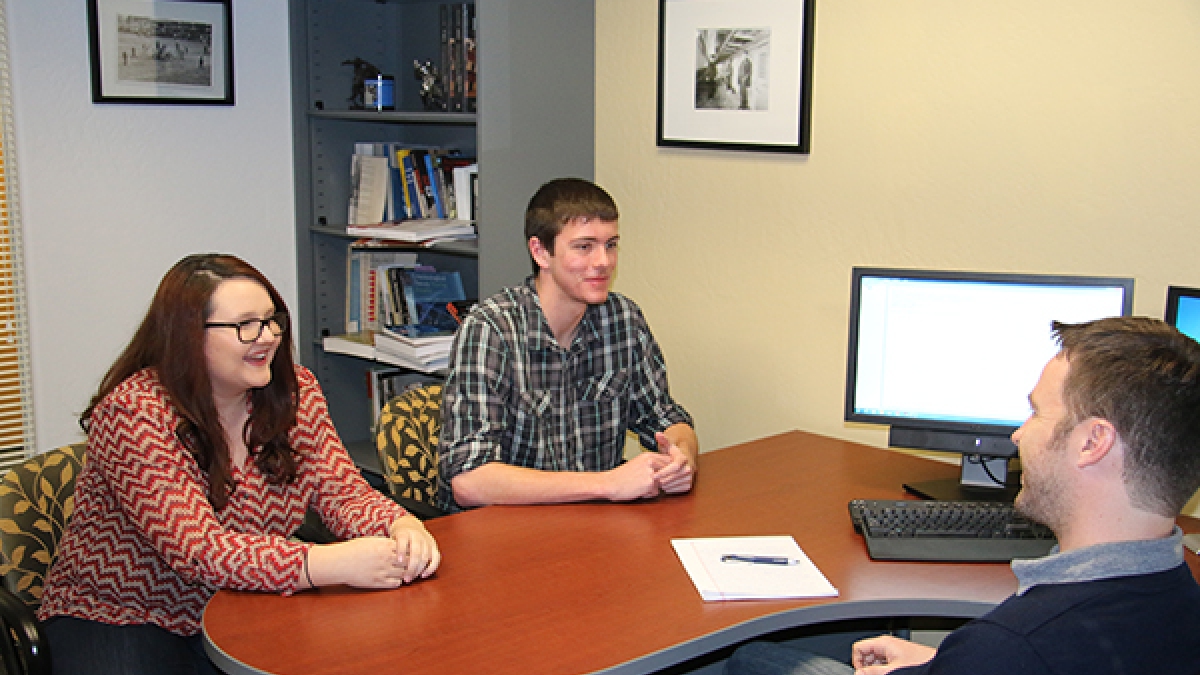Professors, students go behind bars to improve inmate outcomes

How does visitation help or hurt people who are in prison?
Research suggests that visitation is important for a number of reasons, but little work has been done to find out why and how it can be improved.
Working with the Arizona Department of Corrections, professors Nancy Rodriguez and Kevin Wright, in ASU's School of Criminology and Criminal Justice, are taking a qualitative approach to finding answers.
Their work significantly expands on quantitative data – for example, the number and frequency of visits – to examine the effect that visitation has on recidivism, mental health and misconduct in prison.
Both Rodriguez and Wright are engaging ASU students in the project. Graduate students conducted interviews with inmates, and undergraduate students are working to analyze the data.
“We ask, 'who comes, what do you talk about?'" said Wright. "Everything from baseball to very serious conversations."
According to Wright, their discussions with inmates have taught them that visitation does matter.
“One inmate knew she was going to have a problem with somebody on the yard and she went a different route to avoid getting in trouble and losing her visitation privileges,” Wright said.
He added: “Whatever you are doing on the weekend, these families are lining up to see their loved ones.”
Wright credits the openness of the prison administration, staff and inmates in making this project work.
“It is as much access as anything, and everyone from the wardens to correctional officers have bought into this project,” he said. “Ninety-five percent of people in prison are coming back into the community. We all have an interest in finding out how to make the system better."
People don't typically think about what goes on inside of prisons, adds Wright.
“You’ll hear about murders in prison or a riot that gets national attention. We are starting to think more about these collateral consequences and who is affected most," Wright said. "Visitation seems to be one of the few tools that we can use to understand that connection. We are not going to get rid of prisons; we are not going to stop sending people there, but at least we can minimize the harm that prisons might create going forward for these people.”
Getting students involved
Clair White, a doctoral student at Arizona State University, said she has been involved in similar projects and is familiar with the sensitivities of conducting interviews in prison.
“They all have a story to tell,” she said. “A lot of criminology research can be quantitative but loses the storytelling aspect of the lives behind the data. There are a lot of complexities in what they experience, especially with visitation and whether that helps them get through prison and prepare for release.”
In observing visitation and conducting interviews inside the prison, the student researchers all experienced something different.
Arynn Infante, a second-year doctoral student, confessed that she was a little nervous going into the interviews.
“I was expecting something completely different than what I experienced," Infante said. "Everyone was really open to telling their stories, their personal lives, how they got to where they are today and how they want to be better in the future.
“When you are put in a prison setting and you are talking to these people one-on-one, it isn’t something that you get exposed to every day. You hear about crimes, sentencing and release, but you don’t hear about what happens in between,” she said.
Natalie Brin Jones, an undergraduate criminology student who is also in Barrett, the Honors College, said she had never really thought about corrections, and was surprised to find it so interesting.
“People are worried about staying sober and getting a job," she said. "Few feel confident or close to prepared for release. People think incarceration solves the whole issue of crime but there's more to it than that. Our job is to pinpoint the negative parts of incarceration so we can find a solution."
Garrett Shipley, a junior pursuing a double major in criminology and criminal justice and psychology, said, “We were encouraged to do analysis – to draw things together and figure out why things are happening.”
Shipley is interested in ministry and says the prison aspect provided good insight.
“My classes pushed me toward corrections, but seeing the kind of help that can be given to people, seeing how effective it can be is a whole other thing,” he said. “They are people – it sounds cliché but something that is often forgotten is how we treat people.”
Wright found his interest in corrections from a similar path. A sociology undergraduate major, he had an internship where he met with people about to be released from prison.
“For many individuals, it was a bleak prospect,” he said. “Some couldn’t read or write, and we are expecting them to stay crime free. It focused my interest from that point on – how can we improve their chances going forward?
“Hopefully our students are getting a little of that as well. Once you get to the role of corrections in our criminal justice system, you don’t have to worry as much about what people did. For me, it is finding ways to ensure they don’t come back here. Visitation seems to be a promising way to accomplish that.”